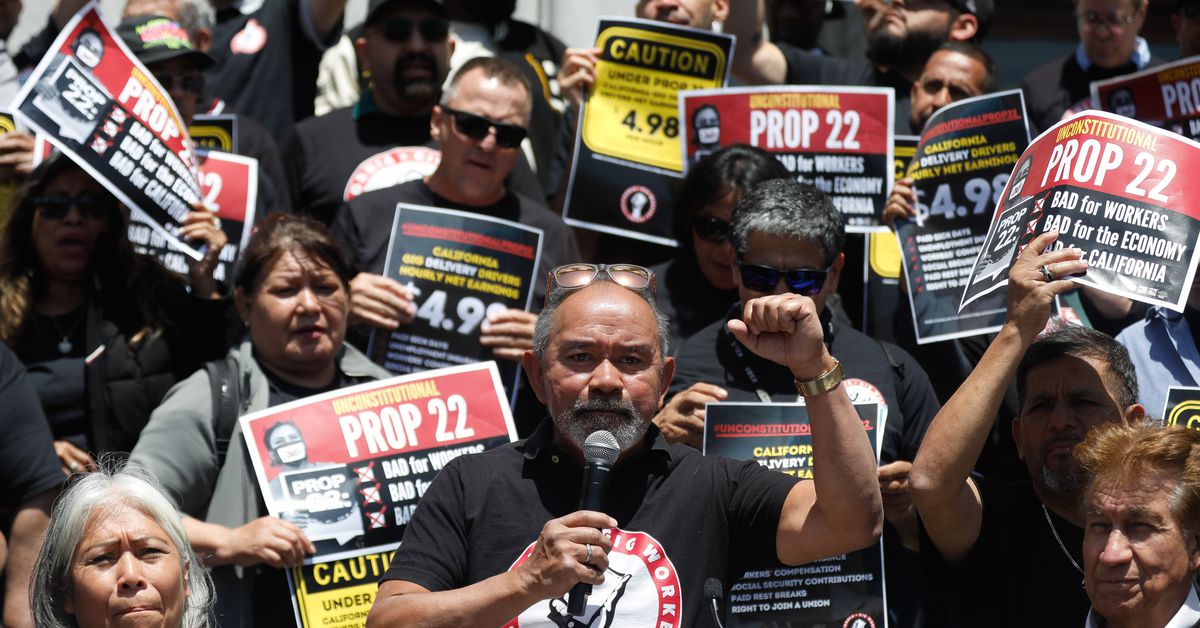Proposition 22: Why the State Supreme Court ruled against Uber, Lyft and DoorDash in defending worker rights and benefits in the gig economy
Uber, Lyft, and DoorDash have all issued responses in support of the court’s decision. “From the moment it became law, Prop 22 has been working for the millions of drivers and couriers that earn on platforms like ours,” Uber writes in a post on its website. More than one billion dollars in benefits have been delivered by the ride sharing service alone.
Opponents of Prop 22 are frustrated with the outcome. “We are deeply disappointed that the state Supreme Court has allowed tech corporations to buy their way out of basic labor laws despite Proposition 22’s inconsistencies with our state constitution,” Lorena Gonzalez, the president of the California Federation of Labor Unions, says in a statement posted online. Workers and the public are forced to take on inherent risk because the companies upended our social contract.
The 2020 ballot measure required the app-based companies to institute a wage floor, at least for the time drivers spend with passengers in the car, and to pay out health care stipends for workers who drive enough monthly hours.
Nicole Moore, president of Rideshare Drivers United and a part-time driver in Los Angeles, said the decision to confirm that workers are actually workers with robot managers was supposed to bring justice. “And we deserve the same rights and benefits as all other workers in our state. But that did not happen today.” Moore called on lawmakers in the state to find a “creative pathway” to ensure that drivers are protected and paid fairly.
Drivers on the call said that they were happy to see that app-based companies wouldn’t lose their flexibility. “I’m just so grateful right now,” said driver Stephanie Whitfield, who works in the Coachella Valley.
The ruling won’t have a direct effect on other states’ gig worker laws, but could influence policy in other places. Both Minnesota and Colorado have recently passed laws that make it easier for app-based drivers to get paid better. The Biden administration has taken aim at worker misclassification in the gig economy through new labor rules, though app-based companies say those rules don’t affect their businesses.
